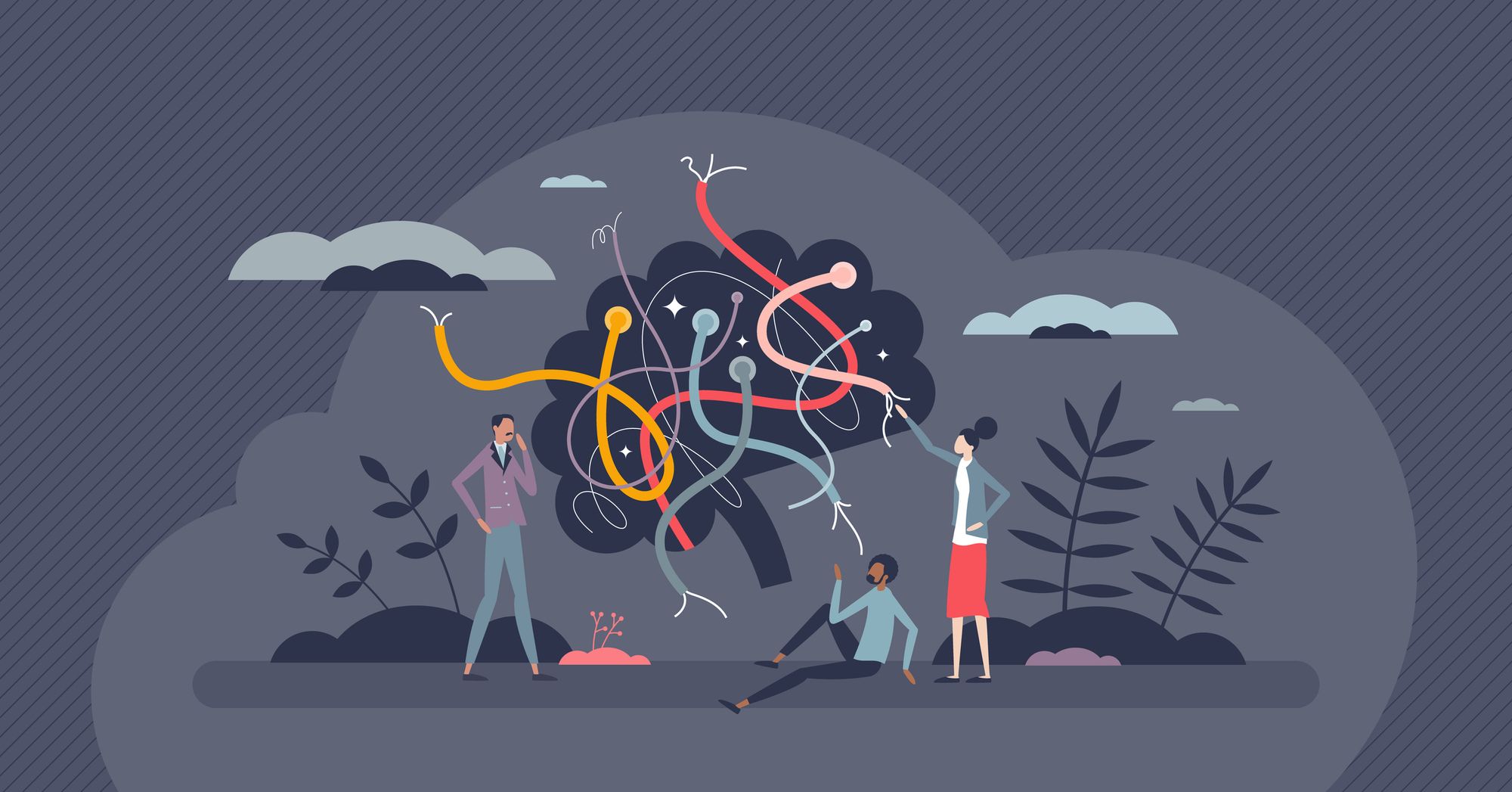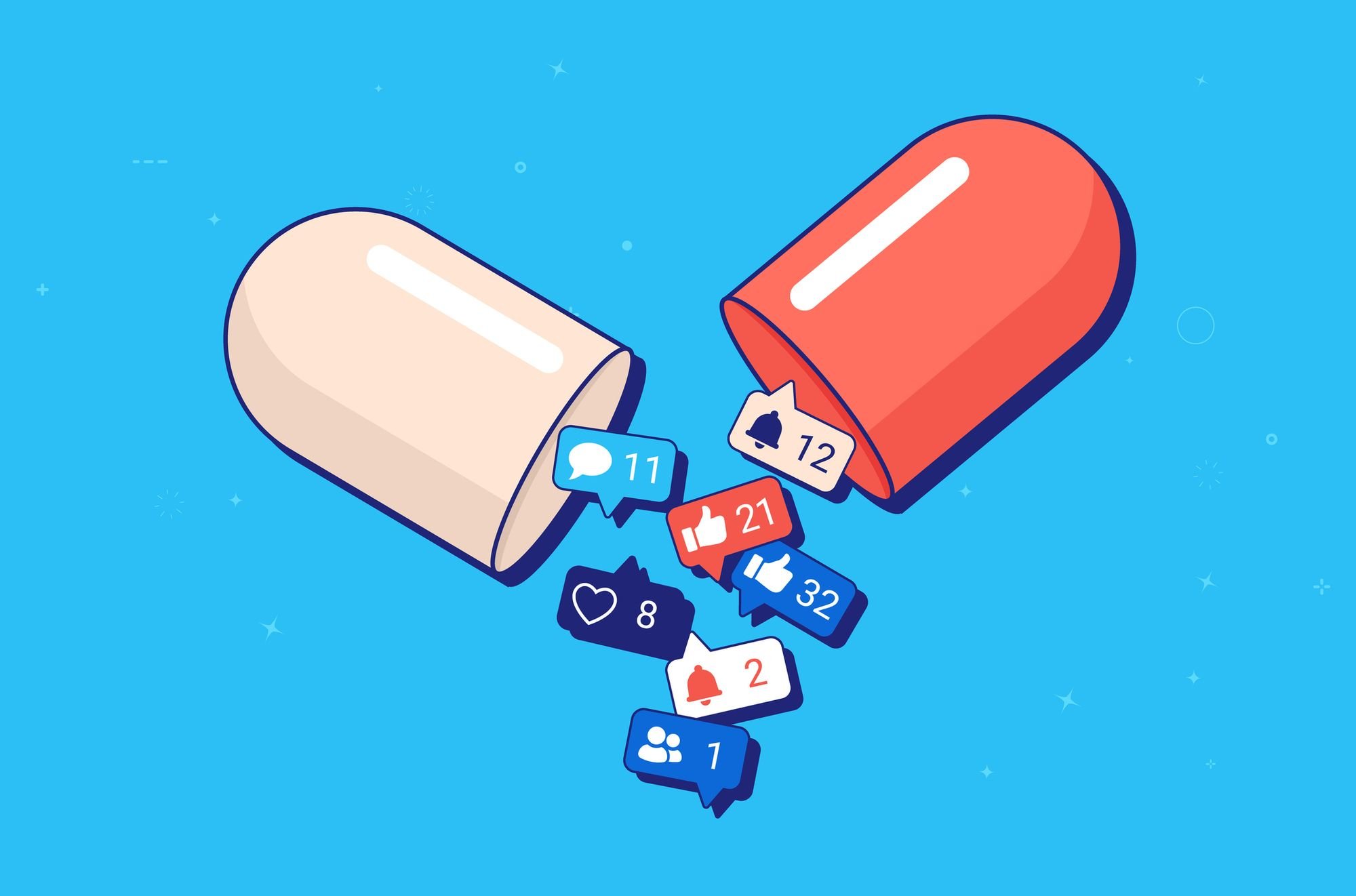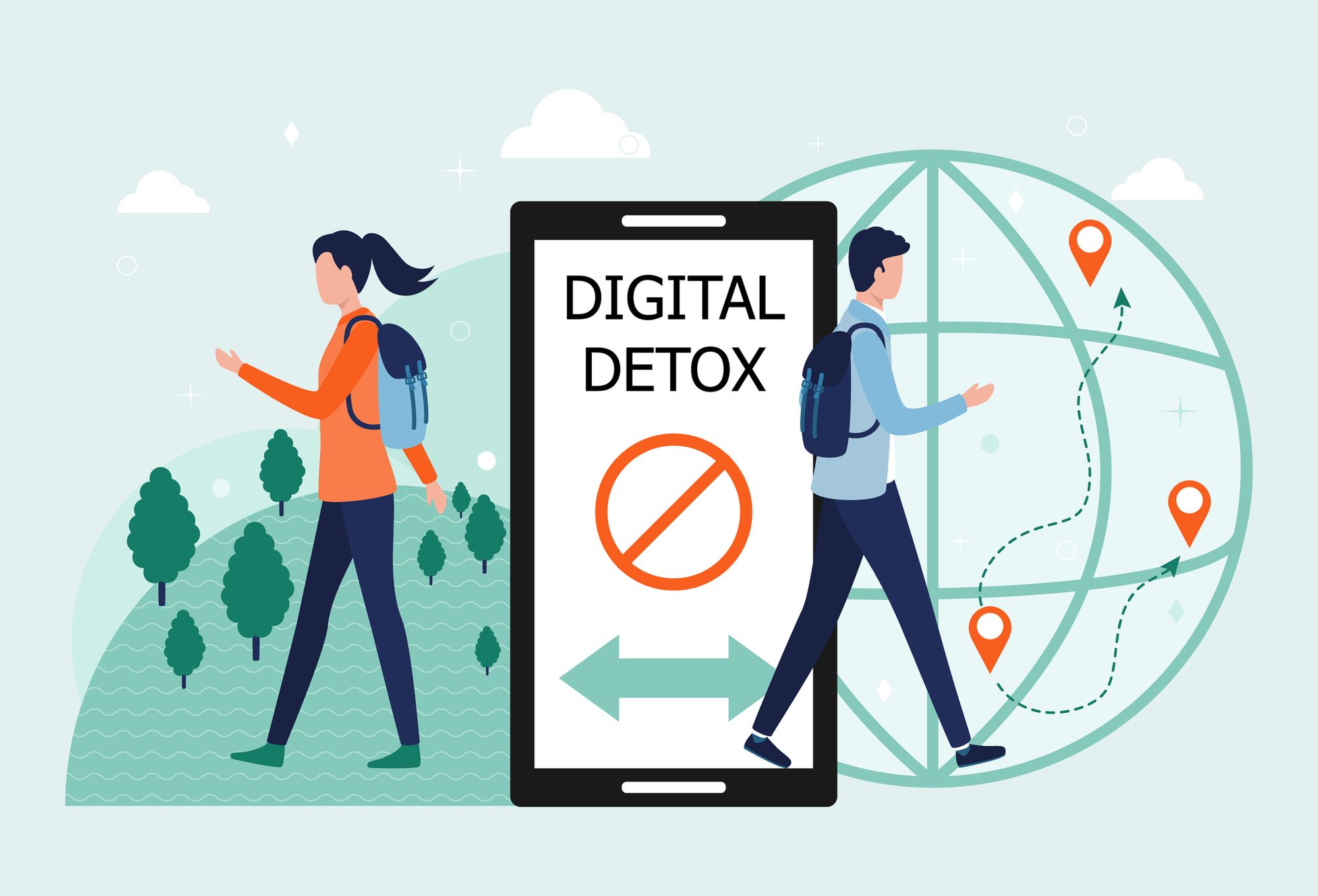I recently returned from a hiking trip where I climbed Morocco’s highest mountain, Mount Toubkal, setting off before dawn and struggling up steep scree slopes in the dark. We reached the ridgeline as the sun rose. The early morning light softly gilded the craggy silhouettes of the surrounding peaks. I snapped a photo, producing an insipid simulacrum of the view. Too tired to persist, I put my phone away and decided to enjoy the moment, instead of trying to record it.
The urge to capture moments from our lives is not a new part of being a human - we’ve been doing it since we painted the stories of our lives on the walls of caves. But the extent to which we do this has increased and intensified as technology has evolved. Our smartphones enable us to take hundreds of photos a day and to access those images instantly. We share these images on social media, where they're seen by hundreds of strangers, then we eagerly await the first ‘likes’.

The usage of digital media, from online gaming to smartphones, has transformed the fabric of our daily lives. On average, people in the UK check their smartphone every 12 minutes of the waking day, whilst two in five adults look at their phone within five minutes of waking up. A 2022 report found that the average screen time among UK adults (in addition to work) is five hours a day.
Technology has numerous benefits. Messaging platforms like WhatsApp enable us to stay connected with friends across the world. Social media can help people build communities of likeminded individuals. But while we acknowledge these benefits, this feature focuses on the negative effects of technology. It questions what about digital media is taking up so much of our time and attention. Are there any adverse effects to excessive technology use? What can be gained from doing a ‘digital detox’ - putting our phones away and abstaining from digital media use altogether?
The Effects of Technology

Dr Daria Kuss, an academic specialising in cyberpsychology, has been researching the problematic usage of technology for over 15 years, including gaming, smartphone usage and online dating. She quickly makes the distinction between addictive behaviour and problematic use - the former, she says, can only be applied to a small number of people.
“The key criteria for addiction is significant impairment - when you find that your usage is significantly impairing your work, your school life, your relationships with peers, family members and partner,” she says. “If this is the case for an extended period of time, this may be the indication that there’s a more serious problem.”
Excessive screen time has been associated with anxiety, depression and body dysmorphic disorder in some instances
While few of us experience this level of impairment, chances are we’ve been distracted from work by a juicy bit of gossip on a WhatsApp chat, or from what a partner is saying by a funny video on Instagram. And the more time we spend online, the higher the likelihood of experiencing adverse mental and physical effects.
“From a physical perspective, sedentary behaviour is very problematic - it can lead to obesity which is associated with a number of physical and mental health problems,” Dr. Kuss says. “Then there is the impact on sleep. We know, especially in young people, sleep can be detrimentally impacted by technology usage, especially just before bedtime - exposure to bright lights at night negatively impacts circadian rhythms and melatonin production, which are essential for good sleep. During stages of psychosocial maturation, when children’s brains and bodies are still developing, not getting enough sleep can lead to developmental problems. Lack of sleep is associated with depression and anxiety in adults.
“From the psychological perspective we also know that excessive screen time has been associated with anxiety, depression and body dysmorphic disorder in some instances,” Dr. Kuss says. “When people have problems with their body image it can be exacerbated through excessive social media use.”

If we want to understand the extent to which technology impacts us, we need to understand the concept of ‘neuroplasticity’, which is how the brain changes in response to new stimuli and experiences. The most basic unit in the brain is a neuron, which transmits signals and information to adjacent neurons via synapses, and creates connections within the nervous systems. Synapses that are used frequently become stronger, whereas those used less frequently atrophy through underuse.
For example, musicians have more developed motor, auditory and visuospatial brain regions than non-musicians; basketball players have enlarged cerebellums (the area of the brain coordinating the body’s movements). In other words, the activities you engage in affect the structure of your brain - even passive processes such as scrolling through social media.
Digital technology use has shaped our brains in numerous ways. An increasing body of research suggests that heavy media multitasking (juggling multiple media streams) is associated with increased activity in the brain’s prefrontal regions - the area associated with maintaining goals in the face of distraction - meaning people are having to work harder to focus. Heavy media multitasking impacts concentration, and can cause burnout and fatigue.
Excessive social media use can also cause changes in brain chemistry. A 2017 study by He and al. suggests it can lead to a ‘pruned’ amygdala - a part of the brain associated with emotional processes and decision-making - making it harder to regulate emotions. But what is it about social media that demands so much of our attention?

“When you use social media, the first thing you see will probably be a lot of colours and lights. Our brains get engaged with that sort of thing, and all the nice photos and videos you might see,” Dr Kuss explains. “Then of course there are also the reward functions of a lot of social media applications - likes and comments. Whenever we receive a like for one of our posts, our brain will immediately be triggered, and a reward will be associated with that sort of ‘like’ button press.
“The brain learns to associate a reward with the activity of scrolling through social media, and it will then expect you to use social media in order to get that reward. In time you’ll have to use it significantly more - spending significantly more time on social media and your smartphone - to get the same pleasurable result. In some people this can lead to habituation, excessive use, and the development of some addiction symptoms.”
The bottom line is that tech companies are trying to make money, and they make money by way of people’s attention
An increasing number of articles even go as far as to suggest that big tech companies are deliberately manipulating us into ‘getting hooked’ to their products.
“I don’t necessarily think that companies have the intention of getting people addicted to their technology in the clinical sense,” Dr Kuss says. “But I have no doubt that they are trying to get people to spend as much time as possible on the platforms, because from their point of view it makes sense.
“It’s an attention economy. The bottom line is that tech companies are trying to make money, and they make money by way of people’s attention. If they can get people’s attention, that’s how they can sell them advertisements. So from that perspective, from a business point of view, it makes sense to get people to stay on your platform as long as possible, and interact with it as much as they can.”
Reasons to do a Digi Detox

There’s evidence to show that even just having your smartphone in front of you can impair your concentration. The obvious solution: put it away.
“Out of sight, out of mind. If you put your phone away, you’ll be free to do other things - things that are maybe more important,” Dr Kuss says. “Specify a certain time in the day where you decide to use your social media - maybe half an hour in the morning and an hour in the evening, to get it out of your system and use it to connect with people.
“In a family environment, make sure everyone puts their phones away while having dinner together, so you’re modelling these behaviours for children. Also, in the work environment, if the phone is not essential for your job, if you can put it in your bag or a different room, I would really recommend that.”
If you’re going away on a trip into nature for a couple of weeks, you’ll find it so much easier to not use your technology in comparison to your regular working life
But what about completely switching off? No phone, no computer and no Wi-fi for a specified period of time - a full digi detox. Dr Kuss has conducted a social media abstinence trial, where users were asked to abstain from using social media for a week. Overall, participants reported an increase in mental wellbeing, a decrease in FoMo (‘fear of missing out’), and overall spent an hour less on their smartphones every day.
Some people might find the idea of being without a smartphone or technology difficult. The easiest way to ‘detox’, Dr Kuss says, is to remove yourself from your everyday life.

“Certainly from case study reports, people find it much easier to detox from technology when they are outside of their regular environment,” she says. “If you’re going away on a trip into nature for a couple of weeks, you’ll find it so much easier to not use your technology in comparison to your regular working life, where you’re accustomed to using technology throughout the day.
“I would certainly advocate a digi detox that enables people to get some headspace, not feel like they have to fill every second with scrolling through social media channels, and to do something else instead.”

My husband and I do a digital detox every year. We stay in a shepherd’s hut in Snowdonia, where there is no electricity and no phone signal. We spend our days walking, our afternoons reading and nights around the campfire. A river runs past the campsite, and we fall asleep (much earlier than usual) listening to its soothing burbling sound.
Whenever I do this, I notice that I’ve become calmer. Time feels somehow slower and richer. My attention isn’t as scattered - I can concentrate better on my book, or on conversations with my husband. Without digital distractions to occupy my attention, I’m able to reclaim it. What’s more, I’m also experiencing the myriad physical and mental benefits of being out in nature: improved focus and decreased stress.

A study into the effects of Shinrin-yoku, or ‘forest bathing’, showed participants had decreased levels of cortisol (the stress hormone) and reduced activity in the prefrontal cortex, an area referred to as ‘the brain’s command centre’, giving this overused area time to rest and rejuvenate. In short, nature is restorative - a way to counteract the stresses of modern life - and putting your phone away allows you to experience it without any distraction.
But not everyone likes the idea of a quiet nature retreat. Especially if you’re used to being busy, the silence and stillness might feel unnerving. If that’s the case, an active adventure might be a better option for a digi detox.
When I was hiking in Morocco, my entire focus was taken up by the physical and mental challenge of reaching the summit. I had neither the energy nor the interest to wonder whether anyone had messaged me. My smartphone didn’t stand a chance against the arid peaks of the High Atlas in the competition for my attention. Surrounded by mountains, I was reminded how small I was in the grand scheme of things, and of the vastness and beauty of the world around me.
Inspired? Try a digi detox on one of our expeditions around the world, or any of our other epic adventures.



